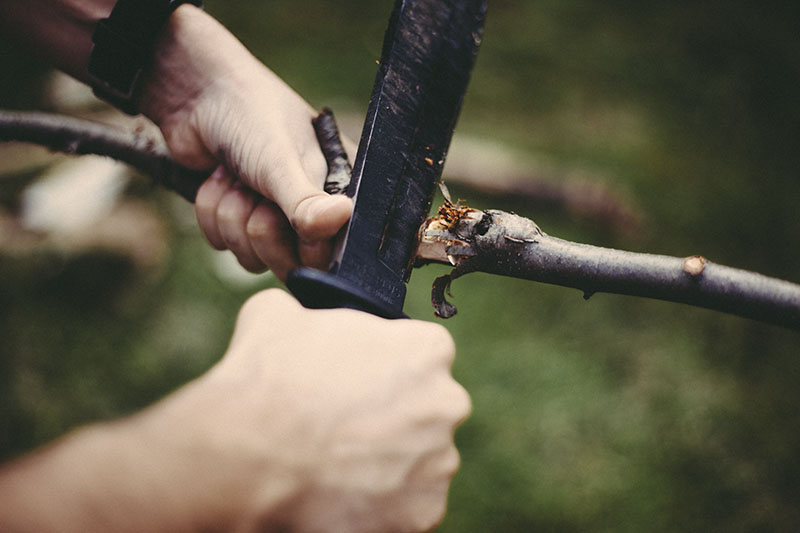You simply never know when you will face an event that requires you to employ basic survival skills – it could be for a few hours, days or weeks, depending on the event and its severity.
Knowing how to address those situations is critical, but to build that skill set, you have to follow some basics.
Lay The Groundwork: Learn The Basics First.
Don’t get too ahead of yourself. Yes, it would be amazing to have mastered the art of fire-making by using only sticks, but do you know how to start a fire with matches yet? What about starting a fire with a simple firesteel? Once you’ve got these simpler methods down, then move on to the more difficult stuff.
You’ll have covered more groundwork and laid the foundation for much more complex skills.
Use Different Mediums: Read, Watch Videos, Listen to Podcasts.
Test out every kind of learning you can so you can find what suits you best, then stick to using whichever medium makes makes you most comfortable or helps you to learn best.
If that’s reading survival and preparedness blogs, subscribe to some email newsletters or RSS feeds. If you’re learning best by watching Youtube videos, subscribe to some channels and keep an eye on new content. If you’re better with podcasts that you can listen on your way to work – get downloading!
Practice, Practice, Practice!
Take what you’ve learned and practice it. Don’t just trust you’ll be able to make a fire after it’s rained because you’ve read about it – actually test the process out!
You don’t have to go much further than your own backyard to train yourself if you don’t want to – you’ll always be able to translate the skills you’ve taught yourself at home to the field. Just make sure you’re physically going through the motions of rehearsing the knowledge you’ve gained, testing yourself to make sure you can actually reproduce what your head knowledge dictates you should be able to do.
Incorporate Survivalism Into Your Everyday Life.
Put what you’ve learned to good use by incorporating it into your life. Take regular camping trips, start barbecues with firesteels, make pine needle tea in the evenings, go mushroom hunting and herb scavenging around your area for ingredients to use in your kitchen – use that knowledge you have as regularly as possible so you won’t forget it!
Constantly Be Assessing Your Own Skills and Limits.
Nobody’s perfect. Every survivalist has skills that they excel at and ones that they need to work on.
Knowing where your areas of expertise are is important to boosting your confidence. If you’re good at hunting and foraging – great! While you likely won’t always be able to snag a meal, at least you have a good chance of being able to do so with solid hunting and foraging skills.
It’s also important to know your own limits and what will come difficult to you so that you don’t get frustrated when things don’t go your way.
Don’t stop using what you’ve learned.
Don’t let yourself stagnate – or even worse – forget what you’ve learned by not using your survivalist skills for extended periods of time. Keep pushing yourself to learn new things and always refresh your memory when it comes to old ones.
Once you have become a better survivalist, things don’t just end there. It’s a struggle, but you’ll need to keep on top of your skills to make sure they’ll be in tip top shape when you need them.
Even the US federal government has warned the population that everyone should be prepared to face an event that could require basic survival skills and supplies that could last a few days or even weeks.
Being able to survive an event like that does not mean you anticipate a Zombie Apocalypse, but rather that you are aware enough to realize that no matter where you live, a natural disaster could affect your life at anytime and you must be prepared.
To see other tips on how to hone your survival skills, take a look at More Than Just Surviving.

It’s official ONE Year to the date I woke from my DOUBLE LUNG transplant. Be a HERO be a donor
@[100007759836706:2048:Will]